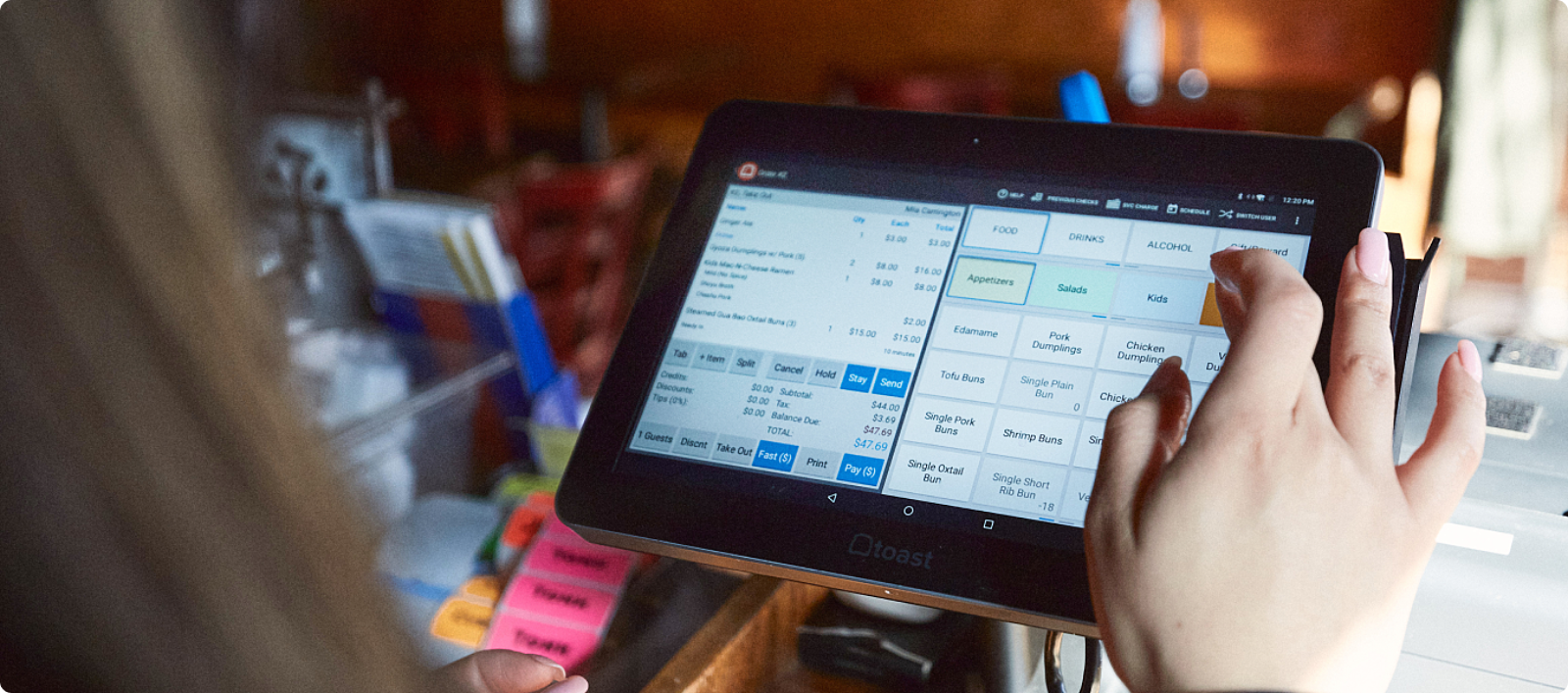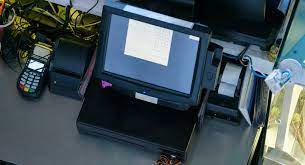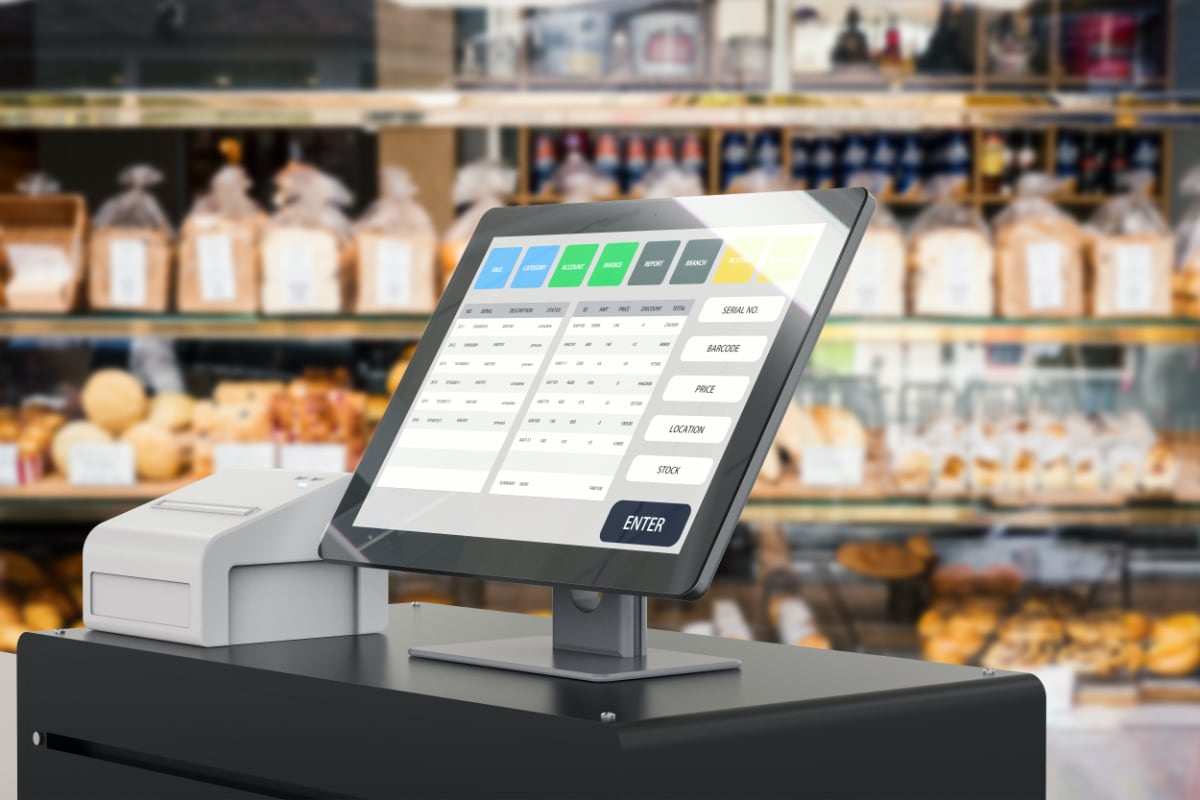Hello!
 To get the most sales in today’s high-performance economy, it’s no longer enough to rely on word of mouth, a friendly smile, and your trusty cash register. Modern businesses require modern, tech-driven solutions such as a POS system. POS stands for point-of-sale. These systems are hardware systems that process payments in stores but can actually do so much more than accept payments.
To get the most sales in today’s high-performance economy, it’s no longer enough to rely on word of mouth, a friendly smile, and your trusty cash register. Modern businesses require modern, tech-driven solutions such as a POS system. POS stands for point-of-sale. These systems are hardware systems that process payments in stores but can actually do so much more than accept payments.
Upgrading to a digital point-of-sale system can enhance your business with additional features that will give your company the edge over competitors. Here are some extra features of these systems that can help you decide it’s time to make the switch.
1. Process Payments Anywhere
 Traditionally, customers have to wait at the register while an employee operates a clunky, outdated machine to process payment, which causes lines and hassle during rush periods. Point-of-sale systems make it possible to take the point-of-sale anywhere in your store.
Traditionally, customers have to wait at the register while an employee operates a clunky, outdated machine to process payment, which causes lines and hassle during rush periods. Point-of-sale systems make it possible to take the point-of-sale anywhere in your store.
Besides a hardware component, many digital POS systems come with software or applications that can be downloaded onto company phones and tablets. This means that you don’t have to buy registers but can rely on simple technology you already have to process payments, also giving your store a sleek look. Plus, with portable tablets and phones, employees can ring up customers anywhere in the store, reducing the possibility that you will lose out on business due to long lines.
Also read: How to Start An E-commerce Business From Scratch
2. Collect and Store Customer Data
A POS system can do so much more than process payments. These digital systems can integrate a screen in the payment process that asks for customers’ contact information, such as emails and phone numbers. This information is useful as data is the top asset you have at your disposal to turn customers into repeat customers. Now that you have the information, you can contact customers with satisfaction surveys, information about new items and sales, and special discounts that will make them come back.
3. Manage Inventory and Invoices at the Same Time
 Besides making the sales process easier, a good POS system can make the rest of your business operations that much smoother. When you scan items into your system, it automatically adjusts your inventory to reflect the change in stock, making it easier to see which items are selling fast and which ones need replenishing.
Besides making the sales process easier, a good POS system can make the rest of your business operations that much smoother. When you scan items into your system, it automatically adjusts your inventory to reflect the change in stock, making it easier to see which items are selling fast and which ones need replenishing.
A point-of-sale system can also help with inventory management in other ways, for example, by allowing you to input orders, inventory transfers, and so much more. There are even industry-specific programs that have special capabilities depending on your industry’s inventory needs.
4. Integrate Other Payment and Discount Methods
The screens on digital POS systems make it a lot easier to manage different payment methods. In addition to taking cards, these systems make it easy to accept gift cards as well as pick customers who are eligible for gift cards.
 Rewards are a great way to motivate loyal customers and encourage newcomers to come back. Due to the easily available customer information in POS systems, you can see which customers are loyalty program members and which ones are not. POS systems integrate easily with existing loyalty programs, making it easy to get customers to sign up for programs or allow loyal clients to redeem rewards.
Rewards are a great way to motivate loyal customers and encourage newcomers to come back. Due to the easily available customer information in POS systems, you can see which customers are loyalty program members and which ones are not. POS systems integrate easily with existing loyalty programs, making it easy to get customers to sign up for programs or allow loyal clients to redeem rewards.
5. Monitor Employee Performance
If you have multiple employees, even multiple locations, digital POS systems allow you to track the performance of every employee operating the system. You can reward each month’s highest earners, compare the earning levels of different locations and shifts, and see which employees might need extra training.
These are some of the highlights, as many point-of-sale systems come with additional useful features.
Also read:
- 5 Secure Ways of Passive Income to Add to Your Savings
- The Ultimate Guide to Digital Marketing for Auto Repair Shops
- Here’s What Parents Should Know About Monitoring Apps
Thank you!
Join us on social media!
See you!






